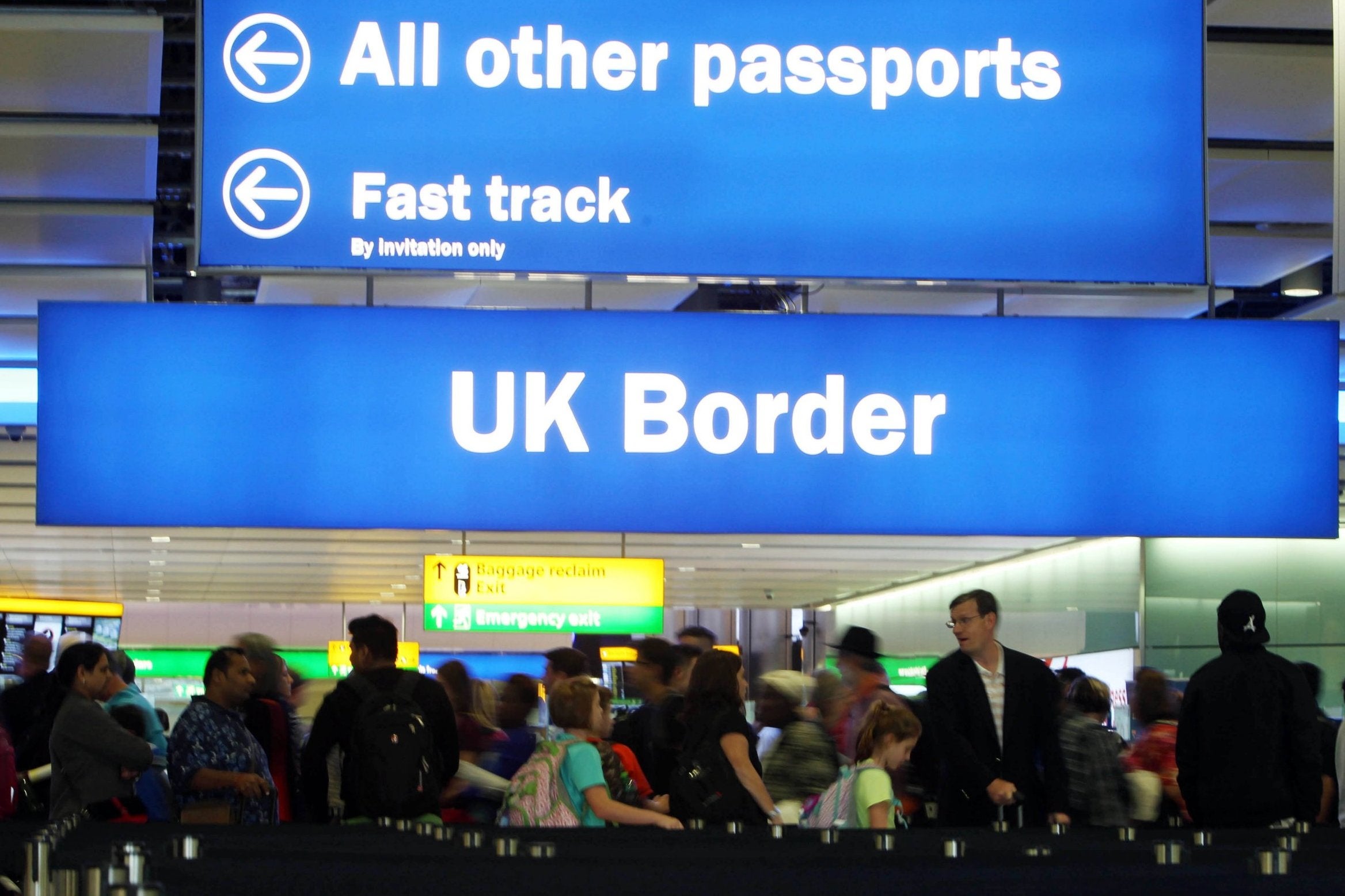The Tories’ new immigration policy will be a disaster for the economy, despite what Brexiteers say
Editorial: The effect of a reduction in EU migrants will be increased labour costs for businesses and a crippling shortage of staff in sectors where European Union workers have made up the shortfalls

When is an Australian-style immigration points system not an Australian-style immigration points system? When the Home Office designs it, obviously.
Instead of an intricate scoring system as the Australians prefer, the British system is basically based on a relatively modest salary floor of £25,600, and even that can be relaxed in so-called shortage professions. There is no points-based system as such, other than for a small number of the most highly-skilled arrivals.
Under Priti Patel’s scheme, overseas workers who wanted to come to the UK would also have to speak English and have the offer of a skilled job with an “approved sponsor”. In total, immigrants would have to reach 70 points to be able to work in the UK. For example, you get 10 points for a PhD; 20 points for a PhD in a science-related subject.
It is some way off what the home secretary promised would be a system that would attract “doctors and scientists”, and so many others, to enter the land of milk and honey that is post-Brexit Britain.
Would-be migrants will also need to be fingerprinted by the authorities, something that is strongly associated with criminals. Even though this is done routinely for non-EU migrants, that is certainly not the kind of gesture that will endear the UK’s negotiating team with their EU counterparts, rightly sensitive about the dignity and the rights of EU citizens.
If the government ever decided to extend the policy to EU citizens currently working in the UK, we have the intriguing prospect of Jose Mourinho and Jurgen Klopp being asked to provide their dabs, which would make for an entertaining news story at least. More seriously, it is a rather ungrateful and insulting way to treat much-needed and willing workers.
The estimate – it can be no more than that – is that the new policy will mean 140,000 fewer EU migrants coming to Britain to work. This may well be what some Brexiteers voted for – though they will be disappointed that the government has no particular target for the overall level of immigration. After a decade in which the government’s target for reducing immigration to the tens of thousands was consistently missed, the Conservatives have decided to simply forget about it. If nothing else, that will open up some political territory for the likes of Nigel Farage, currently at something of a loose end.
The net economic effect of a reduction in such numbers at a time of labour shortage is obvious – higher wages, and thus labour costs for business and a crippling shortage of workers in sectors where EU workers have made up the shortfalls. Some enterprises will go out of business, others will have to raise their prices, and output will fall. Social care, for example, is not to be designated a shortage profession, and those struggling to try and keep the UK’s care system afloat with ever-worse demographics are already calling it a disaster.
The hard truth about immigration is that it is good for the country and good for the economy. This goes for unskilled migration as much as skilled and professional workers, and the odd billionaire. If farms, hotels, restaurants, bars, factories, building sites, warehouses, hospitals and care homes, to name a few, are to be deprived of their EU labour, and that labour is not to be replaced by non-EU labour, then they will struggle. In the longer term it may be possible to replace some of the missing human workers with machines, equipped with artificial intelligence or otherwise, but that will take many years.
There are simply not enough British workers available to fill all the positions that are vacant now, let alone those that will open up from next year. Soon immigration will be a live political issue once again – but because there will be too little of it rather than too much.
Join our commenting forum
Join thought-provoking conversations, follow other Independent readers and see their replies
Comments
Bookmark popover
Removed from bookmarks